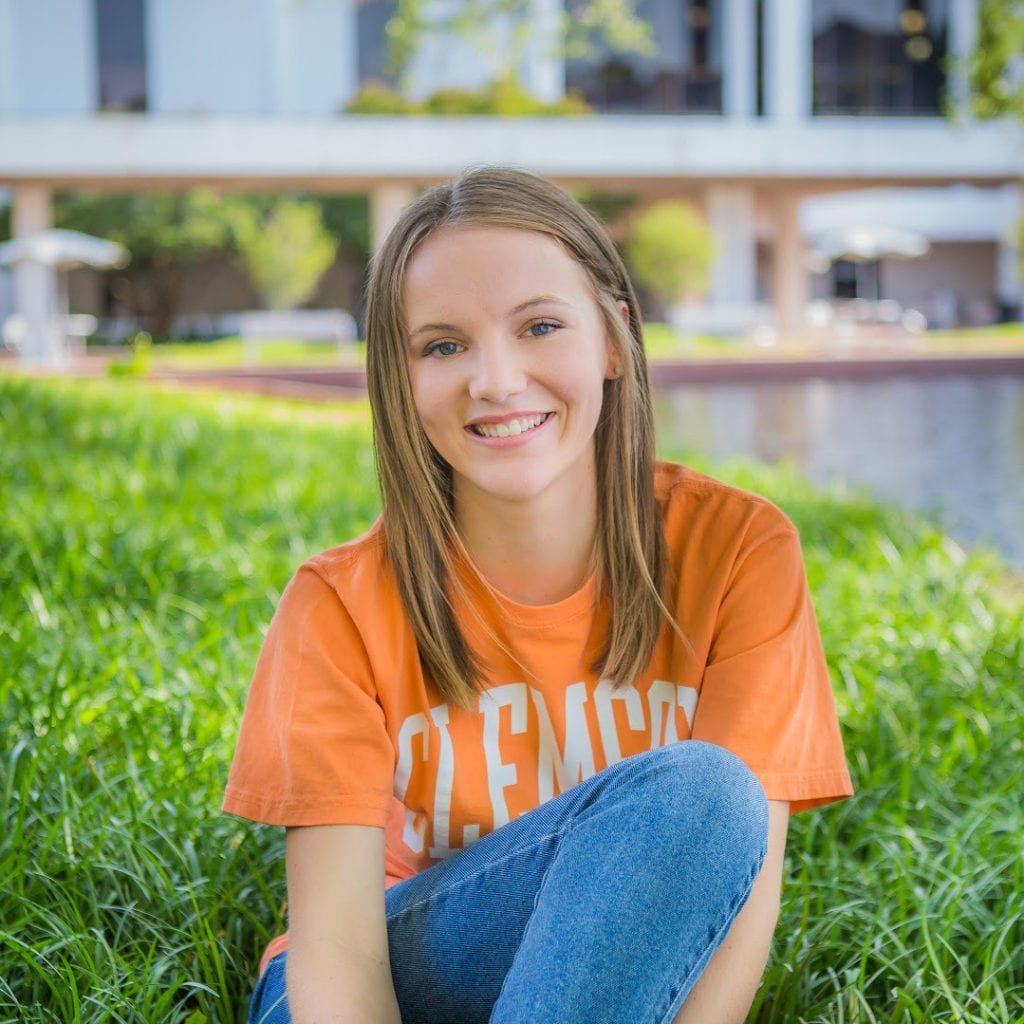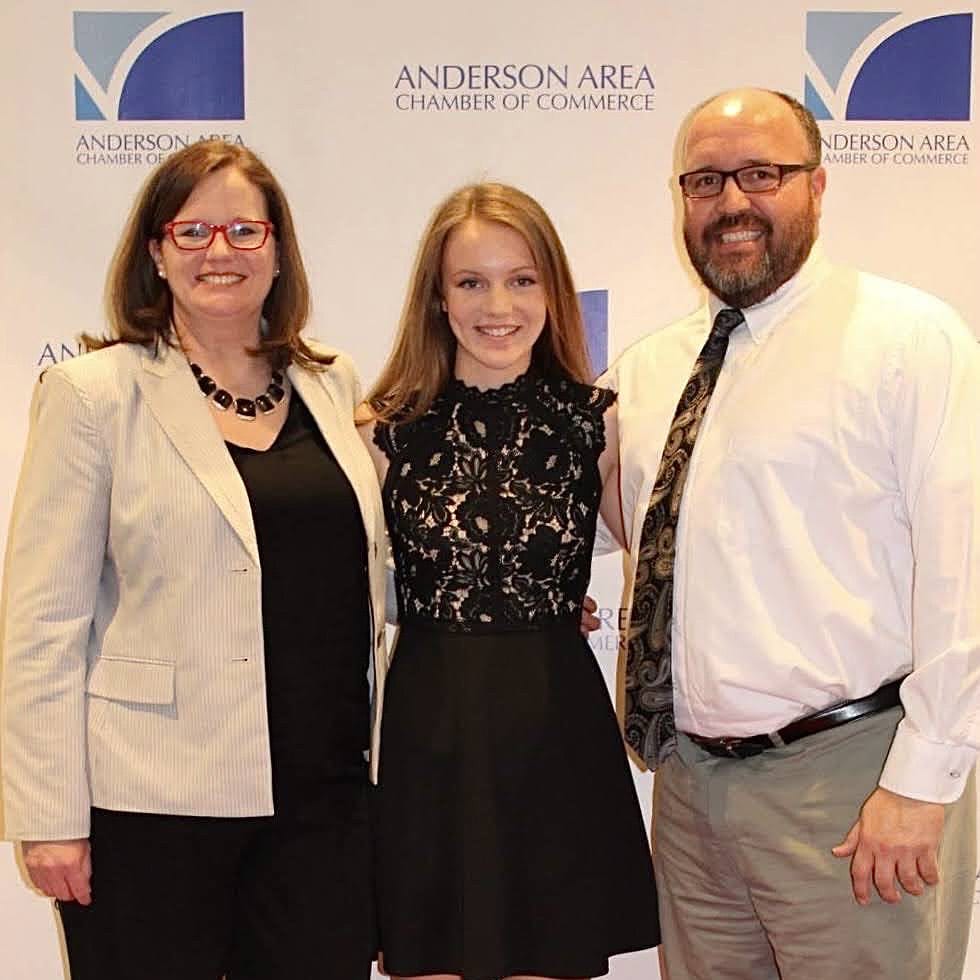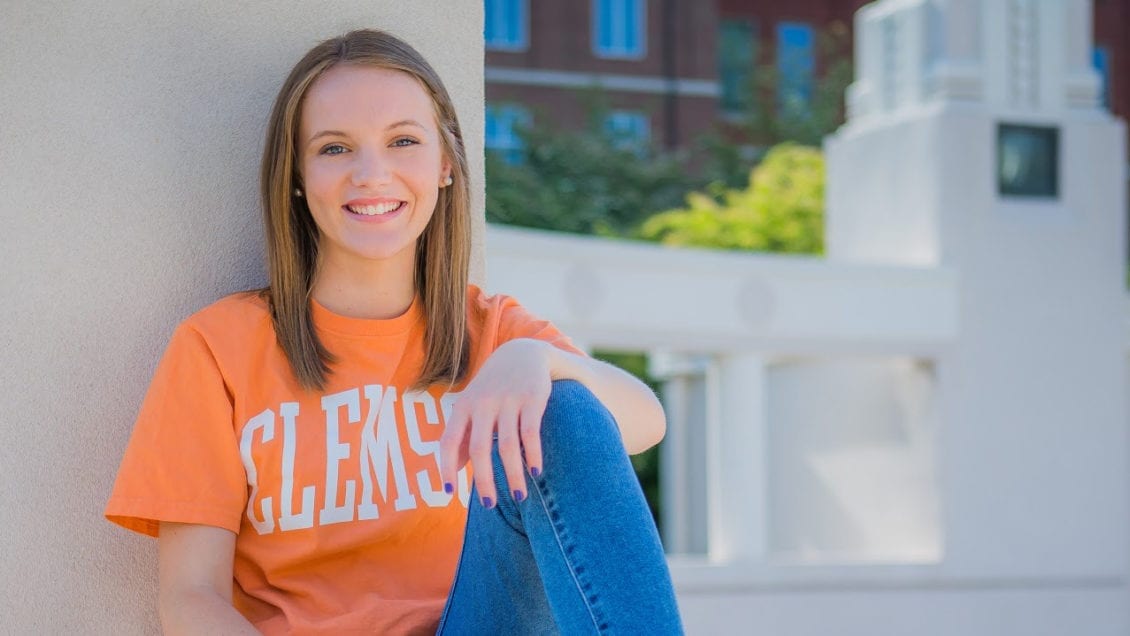Savannah Shealy’s first student teaching experience involved stuffed animals and her younger brother arranged as students in her bedroom. She handed out quizzes and her grading scale was pretty harsh, but she did discover the motivating qualities of candy.
Even then, Shealy knew she would go to Clemson University, where she would study to become a teacher. It runs in the family. Her parents are both alumni of the College of Education and she was raised a Clemson Tigers fan.
Shealy was aware of the Teaching Fellows program as she moved through middle and high school, although at that time Clemson was not yet a participating institution. The Center for Educator Recruitment, Retention and Advancement established the program, which affords students up to $6,000 per year for four years from the South Carolina General Assembly in forgivable student loans. Fellows agree to teach in South Carolina one year for every year they are fellows.
The College of Education became a participating Teaching Fellows institution in Fall 2020, the semester that Shealy arrived on campus, and she has since become a leader among leaders in the program. Shealy recently discussed the benefits of the program, what the College has given her so far and how she hopes to do her part to show people what the teaching profession is all about.
What appealed to you most: Clemson University or the teaching fellows program?
I was always coming to Clemson University. That was no question. I was so lucky when teaching fellows started the semester that I came to Clemson, though. It truly has been the best of both worlds.

We have a wonderful campus director, Staci Koonce, who has guided us as the first cohort in the program. She helped us be a little more realistic when our group came up with some more absurd ideas for activities, but we have been able to participate in some great professional development every month. The last one we did in Spring was my favorite, which was on trauma and how to approach and address it in the classroom.
I’ve actually been able to use some of these lessons as a substitute teacher in Anderson District One, which I did as much as I could in May. I’m also look forward to serving as a cohort representative next year along with Julia Sowell. I look forward to managing communication across the cohort to keep everyone motivated and excited to be a teaching fellow.
What grade do you hope to eventually teach?
I am a secondary education major, and I hope to teach in high school. That’s my preference, but I know I would value any relationship I would have with a student of any age. As a sub, I have worked with younger children. They draw me pretty awesome pictures of unicorns, but I think I want to work with students when they’re learning a bit more about real life. When I think back to the most prominent teachers in my life, they were all in high school. I would like to serve in that role for the students I encounter in my career.
You have a family member also attending the College of Education, right?
Yes! My mom, Christie Shealy, is actually getting her Ed.D. in education systems improvement science. I hear a lot about the program from her, and I think it’s really great that it focuses on real issues in education, such as race and poverty. She’s set to graduate in December. I told her that I’m happy one of us will finally graduate in Littlejohn Coliseum, since my high school graduation was supposed to happen there but didn’t due to COVID-19.

How was your first year at Clemson, considering the very different atmosphere due to the pandemic?
I’ve loved every minute of my first year at Clemson even with COVID-19 changing so much, so I know I’ll love the business-as-usual Clemson University. Some of my roommates are from out of state, and they have yet to experience Death Valley at full capacity. I’m in Tiger Band as a trumpet player and I’ve been to many games throughout my life. I have tried to describe to them what the atmosphere at a packed night game is like, but they’ll just have to be there to understand it. I can’t wait.
What would you say to people who ask why you would go into education?
What really bothers me are people who learn what I want to do in my career, and they say, “why would you do that when you could do all these other things?” I like to ask them “why wouldn’t I?”
Respect for the profession is what is needed. If there has been a good thing about COVID-19, I think it’s that people have been forced to see just how important education and our educators are for a child’s development. It’s also shown what really differentiates good teachers from great teachers.
My goal is to have a classroom environment that encourages the learning process, not just finding the right answer. It’s crucial for a student of any age to learn broader lessons about life through every assignment as much as possible.
Every student should feel valued and respected. When they feel that in the classroom, they get excited to learn and more excited to engage in the world and society in general. I don’t just want to talk about “The Great Gatsby,”—although I could do that all day long—I want to have that impact on people who otherwise might not get that at home.
So that’s what I’d say.
Get in touch and we will connect you with the author or another expert.
Or email us at news@clemson.edu

